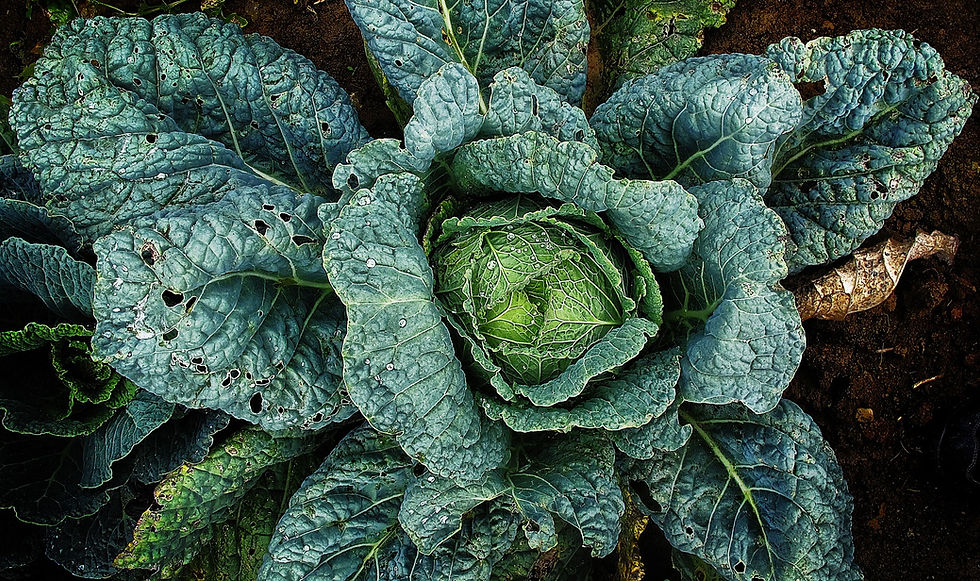Talking Brassicas
- Helen Bradbury, BSc
- Feb 15, 2019
- 2 min read

The brassicas or cruciferous vegetables, are really important when it comes to hormone health. When we metabolise our oestrogens they get converted into hydroxyoestrogens 2, 4 and 16. The levels and ratios of these metabolites may indicate an increased risk of hormonal related diseases such as breast cancer.
Phytochemicals in brassica vegetables may help to improve oestrogen metabolism towards the more favourable 2-hydroxyestrone.
Brassicas include broccoli, Romanesco, cauliflower, cabbage, Brussels sprouts, turnips, collards, kale and Bok Choy. They have long been called superfoods and rightly so – they are packed full of nutrients and a great source of fibre and contain vitamins C, K, A, E and B vitamins including folic acid as well as iron, potassium, calcium, selenium choline and magnesium.
Vitamin K is essential for bone health and choline aids with memory and sleep. They also include indole-3carbinole which has anti-oestrogenic activities. Try and include at least one type of cruciferous vegetable each day.
Cauliflower can be roasted with spices or used to make a delicious curried cauliflower soup, gluten free pizza base or cauliflower “rice”.
Our favourite way for eating Brussels sprouts is to slice finely with a food processor and stir fry gently with lots of garlic and a sprinkling of chilli.
Romanesco is one of the most beautiful vegetables around and can be lightly steamed or roasted with lemon and garlic.

References
Eliassen, A. H., Spiegelman, D., Xu, X., Keefer, L. K., Veenstra, T. D., Barbieri, R. L., Willett, W. C., Hankinson, S. E., Ziegler, R. G. (2011). Urinary estrogens and estrogen metabolites and subsequent risk of breast cancer among premenopausal women. Cancer research,72(3), 696-706.
Fowke, J, Longcope, C and Hebert J (2000). Brassica Vegetable Consumption Shifts Estrogen Metabolism in Healthy Postmenopausal Women. Cancer Epidemiology Biomarkers & Prevention, 8: 773-779.
Higdon JV, Delage B, Williams DE, Dashwood RH. Cruciferous vegetables and human cancer risk: epidemiologic evidence and mechanistic basis. Pharmacol Res. 2007;55(3):224-236.
Kahlon, T.S., Chiu, M.-C.M., Chapman, M.H., 2007. Steam cooking significantly improves in vitro bile acid binding of beets, eggplant, asparagus, carrots, green beans, and cauliflower. Nutr. Res. 27 (12),750–755.
Liu RH. Potential synergy of phytochemicals in cancer prevention: mechanism of action. J Nutr. 2004;134(12 Suppl):3479S-3485S.



Comments